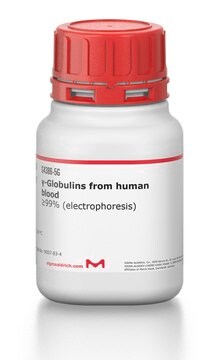M7653
Medium 199
With Hanks′ salts and sodium bicarbonate, without ʟ-glutamine, liquid, sterile-filtered, suitable for cell culture
Synonyme(s) :
Cell Culture Medium, M199 Medium, Medium 199 Solution, TCM 199
About This Item
Produits recommandés
Nom du produit
Medium 199, With Hanks′ salts and sodium bicarbonate, without L-glutamine, liquid, sterile-filtered, suitable for cell culture
Niveau de qualité
Stérilité
sterile-filtered
Forme
liquid
Technique(s)
cell culture | mammalian: suitable
Impuretés
endotoxin, tested
Composants
L-glutamine: no
NaHCO3: yes
Hanks’ salts (2% CO2): yes
sodium pyruvate: no
phenol red: yes
HEPES: no
Conditions d'expédition
ambient
Température de stockage
2-8°C
Vous recherchez des produits similaires ? Visite Guide de comparaison des produits
Description générale
Reconstitution
Souvent commandé avec ce produit
Code de la classe de stockage
12 - Non Combustible Liquids
Classe de danger pour l'eau (WGK)
WGK 1
Point d'éclair (°F)
Not applicable
Point d'éclair (°C)
Not applicable
Faites votre choix parmi les versions les plus récentes :
Déjà en possession de ce produit ?
Retrouvez la documentation relative aux produits que vous avez récemment achetés dans la Bibliothèque de documents.
Les clients ont également consulté
Notre équipe de scientifiques dispose d'une expérience dans tous les secteurs de la recherche, notamment en sciences de la vie, science des matériaux, synthèse chimique, chromatographie, analyse et dans de nombreux autres domaines..
Contacter notre Service technique








